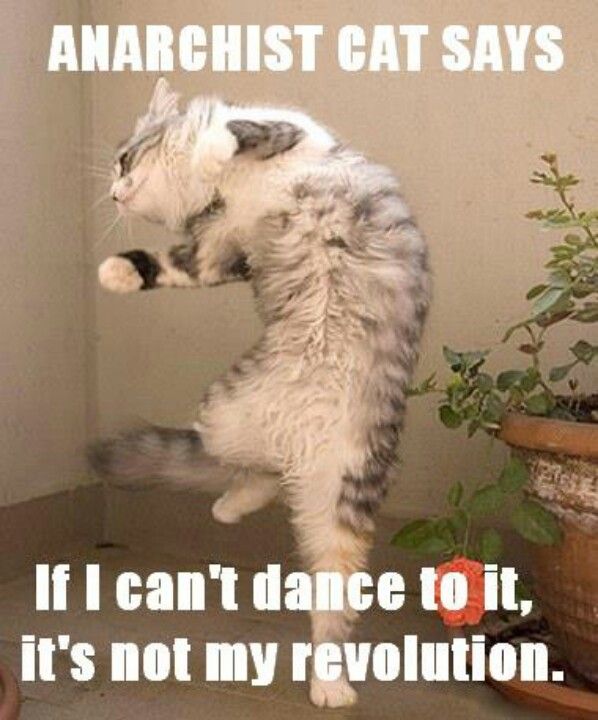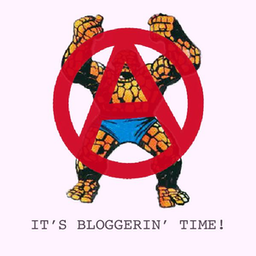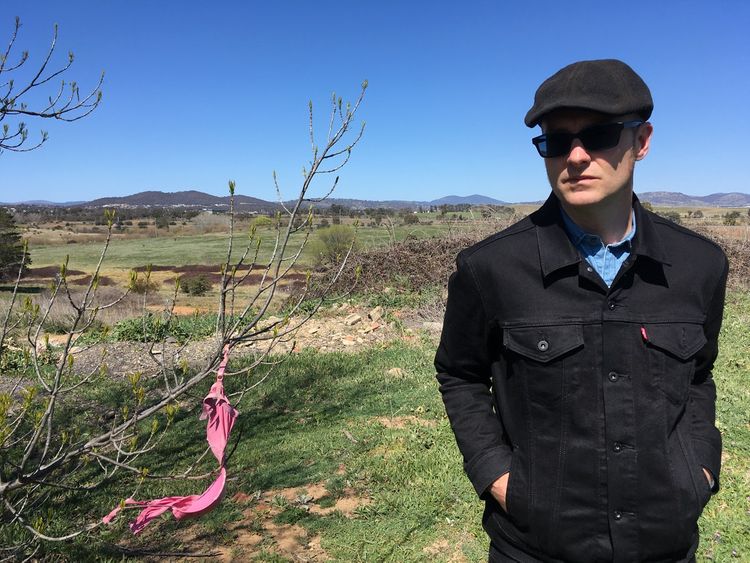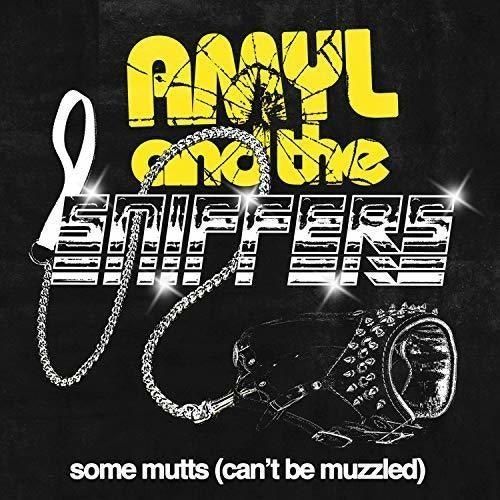Notes on The Mekons, Chronophage, and The Future/No Future


We have a new president sort of and a spirit of strained exuberance has been cast over the country. A reasonably proportioned joy akin to a third wave ska festival where, even if the hope of The Specials headlining failed to come to pass, The Mighty Mighty Bosstones will do. We’re breathing easier, with the freedom that comes with everybody (myself including) acting like COVID is on pause and Instagram feeds chock full of fellow gentrifiers dancing poorly on stolen land. In the words of MSNBC’s elder prevaricator, himself paraphrasing an author whose politics probably skew more Eastwoodian than most of us would care to ponder, if this isn’t acceptable, it’ll do till acceptable arrives.
Like Jay from Violent Bullshit said, before disliking Obama (and, for that matter, cops) was in vogue with white Brooklyn commies, liking your president is like liking the cops. Joe Biden is far better than Donald Trump but my sweetheart, the love of my life, is Afghan so you’ll forgive me if my expectations for the New Boss, at least in that specific regard, aren’t wildly dissimilar than those I held for the Old Boss. Two decades of occupation, managed as an afterthought and coupled with a murderous national indifference to said occupation, has reified in me a cynicism that I’m neither proud nor ashamed of. When Chris Hayes or Rachel Maddow have a single Afghan commentator on their respective shows, maybe we can revisit the topic.
Like Emma Goldman said: “If I have to let people enjoy things I don’t want to be in your revolution.”
But it’s important to be honest with myself (and you, the kind reader). The inability to just let even a single moment of collective joy pass without picking at joy’s scabs is as much an aesthetic as a principle. After all, how brave am I in my constant complaining? I’m not running for office or community organizing or working for a non-profit. My volunteer work has consisted of reading to the elderly or delivering food to shut-ins; uniformly fun shit, entirely divorced from any politics beyond “people are hungry” and “at least a couple people in this old folks home want to hear Charles Simic poetry, presumably.” I attend protests often enough, but mainly chant near the back. I believe with all my heart that these are indeed our fucking streets. Doesn’t mean that every mic check doesn’t make me want to crawl inside my phone case and die. When the chant goes up that “this is what democracy looks like,” my reaction is invariably; “democracy might look slightly sharper in some Fred Perry and/or a little blush.” What I’m saying is that I have principles like a motherfucker but, also, when “Hi Hater” shirts were all the rage ten years ago, that emblazoned handprint was waving at me.
But this is not a blog. It’s a newsletter. I know you’re here for music.
What does it mean when I say that my discontent is an aesthetic? And what does it mean that I’m not going to pretend that I consider a negative mindset hopelessly intertwined with an aesthetic to be a bad thing? (I mean, clearly I don’t. I go to therapy for plenty, but not that.)
What discontent as aesthetic means is that, while I’m loyal to the all arts of adolescent grievance that formed me- be they hardcore or the other kind of music- it wasn’t, in fact, hardcore’s worldview that took. While hardcore is still my favorite art- I heart the beat and hoodies 4-evah- neither calls to unity nor warcries to Manichean rage is my steeze. As far as the other kind of music went; Indie rock (and twee etc) was too on-the-nose to a physical body I was born into and resented with hair-pulling force; nerdy in a way I was positively desperate to get away from. In that vein, rap and heavy metal registered on an intellectual level but the individualistic, sensual bravado of both was more than a bespectacled boy from the hinterlands of Berkshire County could convincingly affect. Funk and reggae was the purview of local hippies; hacky sack just felt like gym class in the woods. No Wave only existed in books on Barnes & Noble shelves at the mall, and the similar aesthetics of both Goth and Steely Dan would come later; when tucking in my shirt and applying pomade made sense on an existential level. And, even at my most cough syrup addled, it only took three Jane's Addiction albums to see alt rock (Smashing Pumpkins, Soundgarden et al) as the philosophical dead end it’s always been. What was left was punk and post-punk. I don’t need to tell readers of this newsletter that these two genres were and are so broad that to claim a philosophical influence from either is akin to claiming that Oxygen Taught Me That It Was OK To Be Weird. And I’ve never been weird; just impotently and messily angry. What’s that leave us? Same thing we’ll always have… The Mekons! (and more recently, and the band this essay is ostensibly about, Chronophage.)
As with all philosophical awakenings that are based upon kicking against the pricks barefoot and end in frustrated micro-blogging, mine started with meagerly scamming a multinational corporation that never cared or noticed, and breaking into a college kid’s car, who probably cared quite a lot. First, I ordered a cassette of 1989’s Mekons Rock n’ Roll from the Columbia House and never paid my bill. Second, after polishing off a bottle of blue raspberry MD “Mad Dog” 20/20, a friend and I broke into a car parked in one of the Williams College lots and stole a stack of CDs. Most of the CDs were Dinosaur Jr. but one of them was the Leeds alt-country innovator’s Original Sin compilation; the compact disc that contained 1985’s Fear and Whiskey and a scattering of additional EP tracks. Both Mekons albums were my introduction to a ramshackle, anti-anthemic (or, rather, anthemic while always distrusting any crowd inclined to sing along) quasi folk punk that asked far more questions than they answered. The Mekons, with their fiddles set to “Detect Bullshit” and their barely-in-tune odes to coal miners, future ex-lovers, and dissidents to every ideology (except admittedly a romantic if not romanticised socialism), set me on a path. Or they gave me my first visceral indication, even when I was only skimming Orwell, that paths, as either architecture or idea, were not to be trusted.

The fact that my friend, Shawn “Magoo” McGowan, immediately sold the CDs and that I wouldn’t own a CD player for another five years hardly matters. Casual disregard for narrative truth is considered a Trumpian trait these days but let’s lower the heat on that for a sec. That creep and his creepers have sucked the fun out of lying but, in this case, I’m not not trying to dismantle any house. Let’s just say I’m just borrowing the master’s tools to tinker with a larger truth. Whether through listening to Rock n’ Roll or just a brief proximity to the Original Sin compact disc, a third way, neither hip nor square, more suspicion than belief, was revealed. From that loose amalgamation of days forward, to the irritation and tolerant bemusement of everyone who has ever known me, I would nitpick at everything.
The ever-careful reader will note that I’ve made no specific mention of lyrics. That’s intentional for my needs. While I certainly love Mekons lyrics, and will bore the pants onto anyone who asks about them, I’m trying to draw some more universal connections here, connections that the astute specificity of Jon Langford + Sally Timms et al’s concerns won’t help with. For the purposes of this newsletter, I’m talking about a worldview derived from a sound.
We take for granted that a music like jazz can, through sound alone, free of sung lyrics, convey or inspire a belief in various freedoms; ranging from the earthly to the transcendent. Same with most dance music (though I’d argue that, unless one considers homogenized escapism a coherent worldview, the returns significantly diminish the farther one goes into mass club culture). The idea gets a bit goofy when applied to punk (and its subsections). Punk is a genre that’s ideas are typically telegraphed- or, more accurately, billboarded- in, via as obtuse a manner of singing as possible. Even when punk lyrics are impossible to understand, because of either a language difference or the way the singer fails to enunciate, the listener has a general sense of what the songs are usually about (namely that war, authority, this bullshit town, and all the protagonist’s bullshit loved ones are irretrievably flawed). So even if the listener loves the instrumentation supporting the words, they still tend to, as muscle memory, foreground the (understood or implied) lyrical meaning. So for a punk (post-punk or proto-punk or just “punky'') sound to get past the lyric exceptionalism inherent to its limited palette, that sound would have to be pretty extreme (e.g. noise punk’s “noise not music” ethos, which many have extended into a lifestyle devoted to liberatory inebriation and/or freedom from society’s oppressive notions of the correct uses for shoelaces).
So maybe, if a punk adjacent sound, divorced from its words, is to have the primal force of jazz or disco, it must exist on the edges of listenable. Or at least have the word “power” thrown in front of it. Maybe.
If one was looking to have an extreme personality.
But if one merely needed a guide and soundtrack to a personality merely based upon the suspicion that society’s lies rain down like silver; from morning to dusk and all through the night, lies, lies, and more lies, and, along with this deeply felt suspicion, this theoretical sound influencer should, through twang and disarray, convey that satisfaction is not only unattainable but, more than that (and Mick Jagger be damned), satisfaction is the enemy? In that case, a rusty scalpel will do as well as a sledgehammer. This aural rusty scalpel could, through a non-reliance on seductive pop nor invariably macho noise, see satisfaction for what it is; deceit’s progeny, as much a cousin to sleep as sleep is to death. Further, this rusty scalpel, maybe accompanied by an out-of-tune piano or two, might suggest that it is only through petulant, grievance laden imperfection (though a petulant, grievance laden imperfection free of the brutish punk and metal sounds too easily co-opted by the brutes themselves) that one even hope to make a truly anti-totalitarian art. If that sound is all one (merely) needs then perhaps barely-held-together folk rock, pissy DIY country, a funk no one with rhythm would ever claim, all played by surly, slacker jawed, serially punch-taking amateurs, might just do the trick.
Mind you, it helped that, until I turned at least 17 or 18, I thought that The Mekons were the only band in existence that fit the above bill. If I’d heard a single band on any of the Messthetics compilations (the cds that document the UK DIY scene of the late ‘70s and early ‘80s) growing up, maybe I’d have just found it all irritating and precious. Or I’d have gotten into Pavement out of nationalist spite. Either way, I’d probably own the entire n+1 building by now.

Whether or not any obscure alt-country bands are specifically responsible for a lifetime of shouting “Bernie Would Have Won” while wearing a Warren shirt and the accompanying (?) perverse need to point out, at every opportunity, that Star Wars is a film series best seriously considered by literal children, is anyone’s guess. Maybe it was high school. Maybe it was my parents’ peers defending Bill Clinton. Maybe it was Simon’s Rock. Maybe it was Kings of Leon. Maybe it was members of Sonic Youth blurbing that J.T. LEROY book. Maybe I actually just liked a million interchangeable hardcore bands and it took a lifetime of hardcore dudes saying weird shit in bar bathrooms to realize that maybe it wasn’t just Israel that they were mad at. Maybe I read too much Greil Marcus and invented a sound in my own head to match the mythic idol smashing I thought I was supposed to hear. Maybe Biden needs to appoint a Music Writer Personal Essay Masked as Profile/Review Truth and Reconciliation Commission to examine Big Music Media’s complicity in making it up as we go along. Or maybe all I learned from punk was that you don’t need to mean it, you just need to mean it, maaaan. Maybe it’s just easier to be cynical than to pick a side. Reasonable people can disagree. Reasonable people can go soak their head as well.
Regardless of the true agit-chicken/agit-egg chronology, I can confidently say that, in these days that no publicist can confidently declare as either completely dark or completely light, I do believe in the power of a singularly fucked up sound.
2,000 words in and a week before their new album comes out, I want to tell you about a band I love: Chronophage.
Chronophage are a band from Texas. They have been around for three years. Chronophage consists of Parker Allen (they/them) guitar and vox, Sarah Beames (she/her) bass and vox, and Cody Phifer (he/him) drums. For the new record, Parker’s brother, Casey Allen (he/him) plays synth. That’s all I know about Chronophage. The internet shows no interviews and, besides punk zines I don’t own (and presumably critics on Terminal-Boredom forums), the music press outside of Austin has ignored them. I first heard about the band from MaximumRnR, which listed their debut, Prolog for Tomorrow, released in December of 2018, as one of the best albums of 2019 (you can do stuff like that when you’re a revered punk zine). Because MRR is famously *cough* averse to cover any band that even flirts with problematicism, I don’t have to worry about my ignorance of Chronophage’s individual members potentially allowing me to big up fascists. Maybe it’ll turn out they’re Maoists (an ideology MRR is less worried about) but I guess we’ll cross that bridge when/if we come to it. Anyway, I had never even heard of Chronophage (a small miracle unto itself considering the underground’s ready access to publicists and music writers- such as myself- who love few things more than being the first to “discover” a band.). But, even while my sense of aural adventure is a bit rusty since the days of having to risk $8.99 on albums based solely on cover art and/or vibes in the air, I just knew Prolog for Tomorrow was going to scratch an itch. Maybe not an immediate itch but, when you keep as many itches on file as I do, you can afford to trust your instincts. Especially when those instincts have already been validated by some punk weirdo in Oakland who’s probably still mad at the Go-Go’s for firing Margot Olavarria fifteen years before they were born. My instincts served me well because that hypothetical punk weirdo was right! (About both things.)
I’m not sure how to describe Chronophage. I’m not a major fan of the comparisons, to Swell Maps or the Messthetics comps, that the punks made. I don’t dislike either point of reference but knowing Chronophage supposedly sounds like both doesn’t affect how I hear the band. Prolog for Tomorrow’s inner sleeve art has “Curse of Chronophage” scrawled, which may be a reference to The Curse of The Mekons. Or maybe not. I’m trying not to project my bullshit on the band. Matter of fact, Chronophage don’t sound anything like the honky-tonkin’-Mekons. Not because Chronophage aren’t honkys tonkin’ but because, historically speaking, American bands aren’t as hung up on sounding American as English bands are. The album art for Prolog is reminiscent of much of the (actually) cut and (actually) pasted Pavementisms of the ‘90s, which in turn was lifted directly from The Fall and all that band’s adherents. Like early Pavement and The Fall, Chronophage are full of hooks, some overt and many buried under transient skronk. But, unlike all the obscurist indie Chronophage shares a typewriter with, the basic template on the album, if there’s one at all, is “folk punk.” I suppose? At least the sense of that genre is present, if dependent on an expansive notion of both “folk” and “punk.” Minus any busking grotesqueries in the “Wagon Wheel” vein, there’s the strum and twang of barely distorted guitars, every string visible in the mind’s eye, maybe in need of tuning or maybe just playing those jazz chords I hear so much about at music critic parties. While only three musicians play on Prolog, horns and keys go in and out of the songs like a C Squat marching band showing up to support the potluck. Adding to the offhand spontaneity of the proceedings, there’s intermittent cowpoke yowlings, some very live sounding drums, and at least one poetry reading. There’s a real anarchist house party vibe but just when it feels like Chronophage are going to lose their train of thought or, worse, ask to borrow the touring band’s kick drum pedal, another fragile and plaintive power pop chorus arrives in time to keep me from retreating to the kitchen to bum beer off strangers.

If we’re going to (re)subscribe to my initial thesis that there are certain sounds made by certain bands that provide a messily alluring alternative to the pat and disingenuous cleanliness of overculture, therefore making a prickly honesty worth striving for (even if that striving lends itself to either self delusion or a romanticizing of failure), then Chronophage are what we’re talking about. Even if on their new album, The Pig Kiss’d (out on November 23), they kind of fuck a significant amount of my thesis over by showing that they do, in fact, know what they’re doing. Whatever. I deserve it. The whole mythology around The Mekons as a band finding dignity in the face of drunken ineptitude was a fib. While not having the chops of The Texas Playboys, and certainly often drunk, The Mekons, by the mid-’80s, were writing and performing songs as subtle and dynamic as any non-boring rock and roll, not to mention post-punk, band could aspire to. Because perfection is so oppressive, its absence will always be its own inherent virtue. But even better than not being able to play your instruments is being able to play them real pretty, but throwing some ugly in anyway. Just to show all the aesthetic bible thumpers that heaven isn’t always the hot shit it purports to be.
The Pig Kiss’d is a sharper, more streamlined, proposition than Chronophages’s first record. The guitars, thankfully still mainly free of any distortion mush, ring out as cohesive riffs. Even while the lite-funk chunka-chunkas still occasionally approximate Desperate Bicycles covering Steely Dan (an under-appreciated subculture band influence… a lot of people don’t know that Big Black’s name was short for “Big Black Cow”), and the snare underpinning gives them a decidedly peace punk punchiness, the riffs now transform into razor-like, no wave leads instead of the decays into noise (or just silence) prevalent on Prolog. While the previous album positioned voices as hesitant souls in conversation, Chronophage’s dual singing is now consistently commanding. Not to say that either Allen or Beames are preoccupied with auditioning for American Idle anytime soon, but they both have cool, heavy-on-personality punk voices, ranging from conversating chill to accusatory growl, which the mix now accentuates. I’m not going to pretend that I don’t miss the feeling of a sinking ship, barely kept afloat by the bodies of oogles under the hull, but I’m also glad for a recording that doesn’t sound like the studio engineer is holding a personal grudge against the drummer.
Of course, in no longer sounding a mess, Chronophage runs the risk of just sounding like, you know, a rock band. Of which there are plenty. Luckily this ain’t the case. The desperate, weird energy of Prolog for Tomorrow is still abundant. It’s just put in the service of songcraft more than ADD-infused mood. If there’s a newfound, almost psych, expansiveness in the songwriting, it’s a psych fueled by strychnine over any slouching towards bliss. And when the songwriting contracts, we get instant classics like the album closer, “Name Story,” which could be an undiscovered New Model Army a-side. So much does “Name Story” sound like a lost hit that I had to write the band and ask if it was a cover. (They responded that the aim was to sound like New Order… which is amazing.) Still, by contemporary indie standards, Chronophage sound like countrified First Wave of Black Metal-ers running through the American songbook. By contemporary post-punk standards, which can be applied now that New Order are on the table, Chronophage don’t sound contemporary at all. They sound out of the timeline; Richard Lloyd skipping post-punk entirely to jump headfirst into college rock, making that nerd rock hip, and vice versa. Lightning striking itself. In the face. Repeatedly.
And by folk punk standards, if we’re bothering to still apply it, Chronophage continue to sound like the only true freaks in a field of future beer reps.
Like I said, I don’t know much about Chronophage. While writing this, I exchanged emails with Parker but, preferring the mystery, I only asked about pronouns and whatnot. Maybe they’re apolitical. Maybe they are Maoists. Maybe they’re neither but still find my chronic naysaying abhorrent and dull. For all I know, they all campaigned hard for Pete Buttigieg and all the proceeds from The Pig Kiss’d are going towards having Chronophage Brand hostile architecture benches placed near the homeless encampments in Austin. Guess we won’t know for sure till the album comes out. But this feels like opposition music, and, more importantly (to me) it feels like music that speaks to a refusal to simply be grateful for the crumbs handed to us. Nit picking, as it were. If not exactly “dignity in the face of drunken ineptitude” then, in the face of endless war and empire and an oligarchal insistence to smile more, Chronophage make a sound that- equal parts sweet fury and sweaty sweetness and spilling over with a feisty, chaotic grace- approaches dignity. If the next few years are great, then great. We can play Chronophage at the cookout we’re all invited to. And if the next four years are instead a happy faced atrocity exhibition, at best a grinding exercise in defending cops, creeps, and landlords for the sole reason of the other side’s cops and creeps and landlords being so much worse? Then Chronophage’s sound will prove to be the kind of correct that’s too sloppy to be smug. Even under austerity, the anarcho-freak punx got bops. So even as COVID, the ice caps, or capital’s poptimist truncheon bear down on us, threatening to tickles our little chins, let us, at least, enjoy this thing.
Thanks for reading!
you can pre-order The Pig Kiss’d digitally from the band or on vinyl here.
PS. Just for kicks, here’s another album from this year that I flippin’ love that, if you like Chronophage, and grok what I’m saying about vibes and sounds and whatnot, you will also love.
PPS and here’s a swell Chronophage video! OK! Thanks again for reading!




